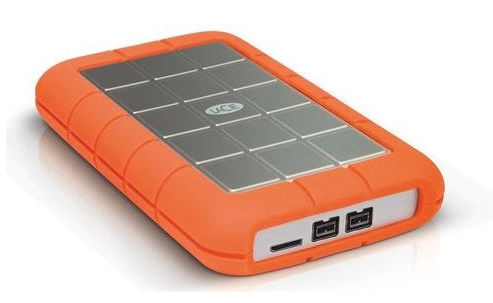First, I am going to give you the rationale on why it is important to back up your computer, or files. Then I am going to give you a few ideas on how you can back up those files, or documents, and still have them if your data is ever lost on your computer.
Rationale: Lost files are not always recoverable. You can rest knowing that if your files are backed up, you still have access to what you need or have created, especially pictures. What if your laptop is left behind at a meeting or PD you just attended and then you went to get it and it was gone? What if your laptop or desktop was stolen? This would not be an easy task replacing personal or district devices, but at least those files that are lost, can be quickly recovered from your backup. What about power failure that completely fried your motherboard to your computer? Destroyed files are often hard to recover when this happens to your computer. Don't forget the mistakes that we as humans can make any day of the week! Remember that Diet Coke that tasted so good and then after setting it down by your computer, a student accidentally bumps it and you see "pop" fall in s-l-o-w m-o-t-i-o-n into your laptop. Aren't your files backed up? What about when from nowhere you have a virus infecting your computer? I can think of many other reasons of why you would need to have your files backed up.
How do I back up my computer?
There are several ways you can back up your files. There are internet services called cloud storage, which allows you to store selected files on the internet and online backup, that allows you to store (backup) your whole computer. I want to keep this list simple so you see what kind of choices are out there for you.
There are several ways you can back up your files. There are internet services called cloud storage, which allows you to store selected files on the internet and online backup, that allows you to store (backup) your whole computer. I want to keep this list simple so you see what kind of choices are out there for you.

- External Hard Drive: The Lacie 1 TB Rugged Thunderbolt & USB 3.0 Hard Drive (9000488) is one that one recommend for teachers. There is plenty of space to store files and portable to carry around. There are other hard drives out there that are cheaper and would serve the purpose. Just make sure enough memory is on it that it will hold what you want to back up.

- USB Flash Drive (aka Thumb Drive) This is a data storage device that contains a USB interface. Flash Drives are often used for storage, transferring files, and back-up. They are small, fast, and very durable. Some of the more popular brands include SanDisk, Kingston, and Lexar. These can be purchased as 4 GB, 8 GB, 16 GB, 32 GB, 64 GB, and 128 GB. Prices range from $4.99-$150.00. It really depends on where you purchase them and if you find them on sale or not.


- Drop Box (aka cloud storage) Cloud storage offers a way to have access to your files whenever and wherever you may be. Anything dropped in Dropbox will appear on all of your devices, apps making that happen, including the website. It is easy to share links, photos, documents, and videos with others. Basic accounts begin with 2 GB of free space. If you invite friends and they accept the invitation, you can earn 16 GB of additional free space. Dropbox also offers a Dropbox Basic Plus account which is $9.99 a month and gives you 1 TB of space and there is a Dropbox Pro plus that is offered for businesses.
It is best to back up your data at least once a month, if not more. The following are links about ways to back up your data.















